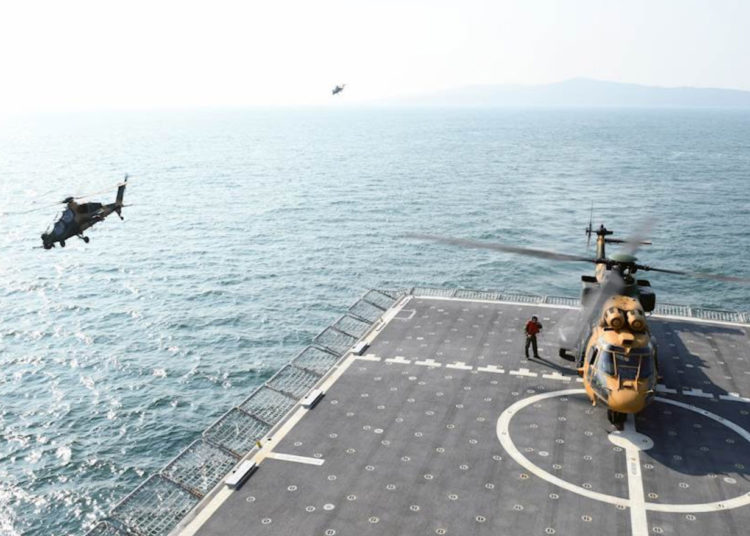Nordic Monitor
Turkey pursued a policy to exclude Egypt and Israel from NATO’s major military activities, including joint exercises in 2015, under the Mediterranean Dialogue (MD) platform, Turkish military documents have confirmed.
According to the military memos issued by the Turkish General Staff in December 2015, Turkey insisted on taking separate North Atlantic Council (NAC) decisions on each exercise to be held by the NATO alliance within the MD framework in order to limit Israeli and Egyptian participation in these activities.
The NAC is NATO’s decision-making body, with all decisions taken on the basis of unanimity.
However, NATO member states including the US, France, the United Kingdom, Spain, Italy and Greece opposed Turkey’s proposal and argued that such requirements would undermine NATO’s cooperation with its partners in the Mediterranean region, the memos stated.

The military documents also revealed Turkey’s strategy of isolating Israel from NATO military exercises conducted under the MD initiative. In that regard, Turkey requested that military exercises be open only to NATO partner states following NATO Military Committee (MC) approval and a NAC decision and that MD partners be allowed to attend joint exercises as observer states.
According to the documents the US, the Czech Republic (Czechia), France, the Netherlands, the United Kingdom, Canada and Greece argued that member states have a right to request the approval of the MC and the NAC for military exercises that are considered politically sensitive but alleged that NATO’s Education, Training, Exercise and Evaluation Policy (MC 0458/3) does not give allies the right to block all joint exercises carried out under the partnership program.
The MD was initiated in 1994 by the North Atlantic Council. It currently involves seven non-NATO countries in the Mediterranean region: Algeria, Egypt, Israel, Jordan, Mauritania, Morocco and Tunisia. The framework was set up to develop political dialogue and practical cooperation between the Alliance and its partners in the Mediterranean region.
Turkish diplomats delivered démarches in Brussels in order to insert Turkey’s position (pro-Muslim Brotherhood) on political developments in Egypt into the NATO Strategic Intelligence Estimate (NSIE/2015) document, the memos underlined, adding that the US, France, Greece and Italy had broken NATO’s silence process, a mechanism used by NATO to adopt texts, since Turkey’s consideration included political motives and were not based on intelligence data.
After the fall of the Hosni Mubarak regime in Egypt, then-Prime Minister Recep Tayyip Erdoğan quickly moved in to gain influence in Cairo during Mohammed Morsi’s presidency. However, following the ouster of Morsi in June 2013, Ankara lost its gains completely and offered the Muslim Brotherhood leadership refuge on its soil. In response, Egypt gave the Turkish ambassador to Egypt 48 hours to leave the country, beginning a rapid cooling of relations. Since then, tensions between Turkey and Egypt have been escalating and are in turn impacting the political situation in the eastern Mediterranean region.
On December 14 the Turkish government submitted a recently signed Memorandum of Understanding (MoU) to parliament, which has indicated its readiness to send troops to help Libya’s UN-backed government. Ankara’s move again raised tensions in the Mediterranean. The following day, Egyptian President Abdel-Fattah el-Sissi urged other countries to stop intervening in Libya, in an apparent rebuke to Turkey, saying: “We could have intervened in Libya. But we didn’t do this and respected Libya’s circumstances to preserve fraternity.”
Moreover, Egypt has also slammed a maritime deal determining the Turkish-Libyan continental shelf and exclusive economic zone coordinates for contravening international law.












